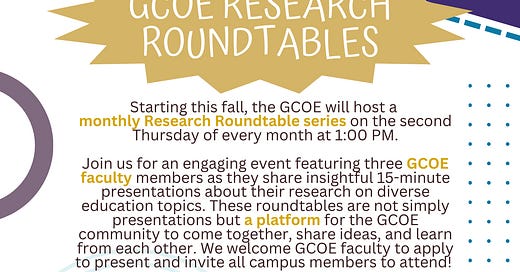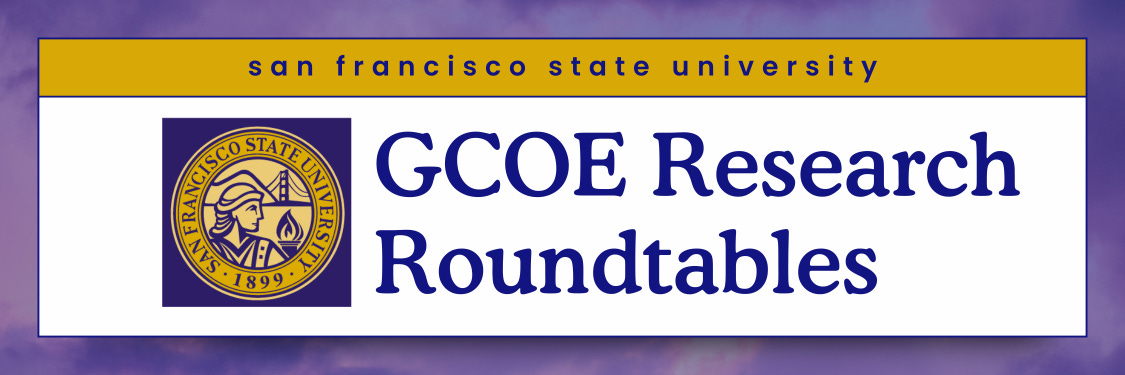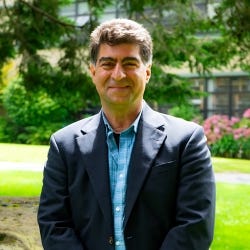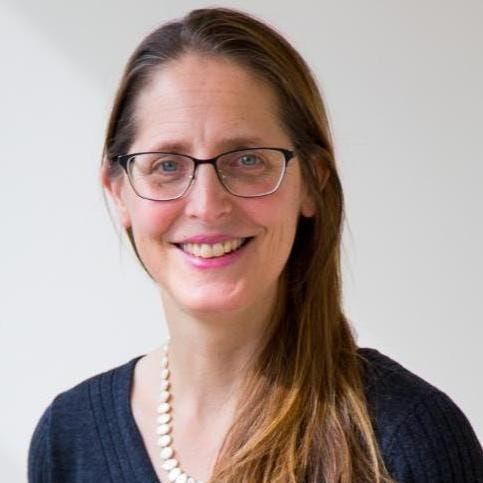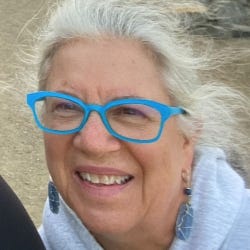SFSU Graduate College of Education Presents...
Navigating the Complexities of Educators: Retention, Leadership, and Caseloads
Hosted by the SFSU Graduate College of Education
and sponsored by the Melvin B. and Dorothy E. Henson Memorial Fund.
Thursday, September 12, 2024
1–2 p.m. PDT
You’re invited to GCOE’s inaugural Research Roundtables!
Join us for a thought-provoking roundtable discussion on the current educational challenges and triumphs. Our esteemed speakers and very own GCOE faculty will delve into the factors influencing teacher retention, the impact of interdisciplinary programs on leadership development, and the critical issue of caseload sizes for speech-language pathologists in school settings.
Speakers:
Dr. Ali Borjian, Professor - Elementary Education (EED)
Dr. Barbara Henderson, Director/Professor - Educational Leadership Doctoral Program (EDDL)
Dr. Laura Epstein, Department Chair, Professor - Speech, Language and Hearing Sciences
More on the speakers…
Dr. Ali Borjian, Professor - Elementary Education (EED)
“Teachers of English in Mexico: Implications for Teacher Retention”
ABSTRACT: Teaching is a highly demanding profession. Teachers are susceptible to multitude of social conflicts and stressful challenges. They may worry about their economic security or physical safety. Accumulation of conflicts can harm teachers both emotionally and physically (Maslach et al., 2001). Certainly not all teachers exposed to high levels of stress leave the profession, but it is important to learn what factors motivate teachers to continue to teach. Teacher retention is crucial for the stability and quality of education systems. High teacher retention rates ensure continuity in the classroom, fostering strong relationships between students and teachers, which is essential for effective learning. The aim of this study is to inform American and Mexican teachers and researchers regarding the experiences of Mexican teachers of English who remain in the teaching profession despite facing multiple social and economic issues. Learning from the experiences of teachers in Mexico can significantly enhance our understanding of teacher experiences in the U.S. by providing valuable insights into universal challenges and effective solutions. Education systems worldwide share common goals, such as improving student outcomes, fostering inclusive environments, and supporting teacher well-being. By studying how teachers in Mexico address these issues, we can identify successful strategies that may be adapted to our context in the U.S. For this study I will employ a mixed-methods approach, combining both qualitative and quantitative research methods. This approach will allow me to gain a more comprehensive understanding of the complex factors influencing teachers' experiences and retention decisions.
Dr. Barbara Henderson, Director/Professor - Educational Leadership Doctoral Program (EDDL)
“Bridging Theory and Practice: Enhancing Leadership Preparation for EdDs Through Interdisciplinary Cohorts and Critical Frameworks”
ABSTRACT: This study employs educational design research to evaluate an interdisciplinary EdD program, grounded in critical theory and transformative leadership. Led by diverse faculty, the program has cultivated a strong community through a cohort model, enrolling its 18th cohort with a 90% completion rate. Focusing on social justice and equity, the study explores the program’s history, its impact on leadership preparation, and how it serves diverse student groups. Findings reveal strengths in interdisciplinarity, cohort-based learning, and critical pedagogy. However, to enhance the program's impact, the study recommends developing intentional bridges between academic work and practical leadership, ensuring stronger integration and application of critical perspectives in educational settings.
Dr. Laura Epstein, Department Chair, Professor - Speech, Language and Hearing Sciences
“Beyond University Clinical Education - the Clinical Fellowship Year”
ABSTRACT: The Clinical Fellowship (CF), a 9-month entry-level, post-graduate position, is an important milestone in a speech-language pathologist’s career. More than half of clinical fellows in California are in school settings. Conversations with current Clinical Fellows in California schools who are SFSU graduates indicate that their CF experience is fraught with unmanageably large and complex. While the California Department of Education Code states that “The average caseload for language, speech, and hearing specialists in special education local plan areas shall not exceed 55 cases, unless the local plan specifies a higher average caseload and the reasons for the greater average caseload," it is all too common to hear that Clinical Fellows, the most recently hired speech-language pathologists in school districts, are actually assigned the largest caseloads. The more senior district speech-language pathologists are given smaller caseloads, thereby keeping the district average caseloads low. There is little to no published data available on speech-language therapists' caseload sizes in school districts, or even district average data in California. Published information about national caseload sizes, which is also scarce, consistently implies that caseload sizes are extreme. Our entry-level speech-language therapists need to know what they are up against when they enter work in schools. They have the right to be informed as to what are the caseload sizes, compositions, and strategies districts employ to work around caseload caps. The goal of this presentation is to increase awareness about CF caseload sizes and their impact on working conditions in school sites.
Registration is required. Can't make it during the scheduled time?
Register anyway, and we'll email you the recording afterward.

